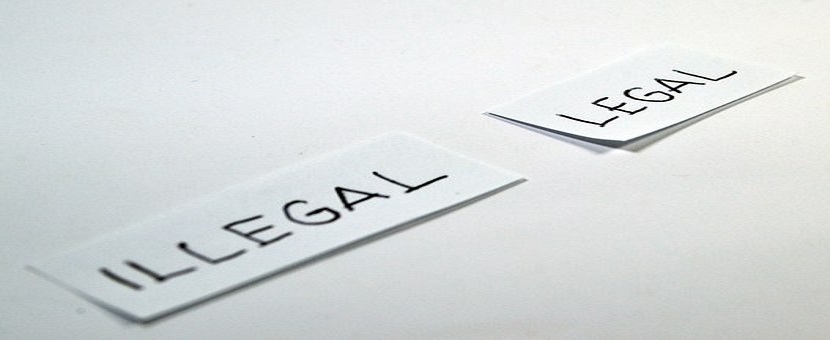Introduction
There is always the tendency to believe that the law is always an ass. Proceeding in such belief, people sometimes involve themselves in certain transactions, hoping to take advantage of the law in reaping undeserved benefits. They are able to do this, riding on some legal knowledge acquired; either by observation, experience, research or with the aid of some unprofessional solicitors and legal advisers.
The law is always ready to avoid being used as an instrument of fraud. It is an aberration for the law to appear to assist a person in perpetrating illegality. This accounts for the reason the courts are often mindful in employing the appropriate canons of interpretation in interpreting statutory provisions as well as written documents and other instruments of legal significance. Beyond this, the courts are careful in considering the surrounding circumstances and conduct of parties in a given situation, and in determining legal rights of parties.
Thus, whenever a person aims at taking undue advantage to the prejudice of another, the law will step in to ensure justice is done. Fairness principles are meant to always govern the application of law to avoid enthroning the triumph of absurdities in the activities of men.
The Court of Appeal in a recent decision (Thomas Wyatt and Son (North Nigeria) Ltd v. Plumstead Investment Ltd [2019] 12 NWLR (Pt. 1687) 540) halted the smart move by a company seeking to rely on illegality to escape contractual liability. The facts of the case are briefly discussed below.
Thomas Wyatt v. Plumstead Investment
A company, Thomas Wyatt and Son (North Nigeria) Ltd (“the Appellant”) obtained a loan of N35 Million from Plumstead Investment Ltd (“the Respondent”). When the Appellant defaulted in repaying the loan advanced, the Respondent filed an action to recover same. The Appellant argued as follows: 1) The Respondent had no powers by its objects to carry out the business of granting loan and charging interest; 2) The Respondent is not licensed to give out loans; and 3) By granting the loan, the Respondent engaged in illegality. The Appellant further contended that it had no dealings with the Respondent, rather, that it dealt with one Mrs. Nenadi Usman (the Chairman of the Respondent). The trial Court gave Judgment in favour of the Respondent. Aggrieved, the Appellant appealed to the Court of Appeal.
The Court of Appeal held that from available evidence, the Appellant actually had dealings with the Respondent and not the said Mrs. Nenadi Usman. The Court further held that the Appellant failed to exhibit the Memorandum of Association and Articles of Association of the Respondent to prove its assertion that the objects of the Respondent do not allow it to give out loans.
On the real bone of contention touching on the alleged illegality, Daniel-Kalio, JCA, relying on the Supreme Court case of Ibrahim v. Osim [1988] 3 NWLR (Pt. 82) 257 had this to say:
“Further, the argument that the Respondent acted illegally by giving the Appellant a loan is rather cynical. It is interesting that the Appellant like the proverbial three monkeys – Mizaru, Kikazaru, and Iwazaru saw no evil, heard no evil and spoke no evil at the time it wrote Exhibit B asking for a loan from the Respondent. At that time, the Appellant saw no illegality, heard no illegality and spoke of no illegality. Now that it is has collected a loan of N35 Million from the Respondent and has been asked to repay the loan with interest, the Appellant has suddenly seen illegality in the loan agreement… Even if there were an illegality, the Appellant was part of it having signed off on it. It would then be a case of mutual wrongdoing or illegality. In which case the Appellant is trying to take advantage of its wrongdoing. The law will not allow the Appellant to do that for nemo ex suo delicto moliorem suam conditionem facere potest (no one can improve his position by his own wrongdoing). The Appellant cannot take the Respondent’s N35 Million only to turn around to refuse to repay the loan alleging that the loan was illegally given to it. That will amount to approbating and reprobating. That is not allowed in law for quod approbo non reprobo meaning ‘that which I approve, I cannot disapprove.’ It is also not allowed in equity as he who comes to equity must come with clean hands. The Appellant cannot be heard to say that the transaction is illegal.”
Conclusion
It must be quickly pointed out that, the foregoing does not tend to suggest that where parties decide to enter into illegal contract or a contract to commit illegal and/or criminal activities, the law will be willing to preserve the sanctity of contract. No! Such contracts fall into the category of unenforceable contracts and the law cannot countenance any contract that has all the trappings of illegality and criminality.














